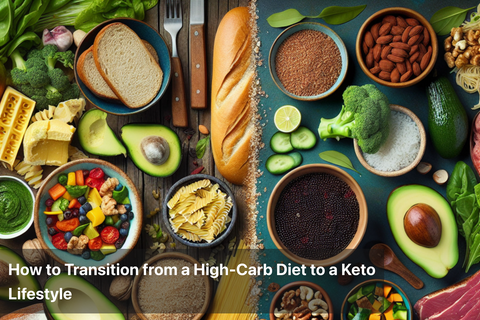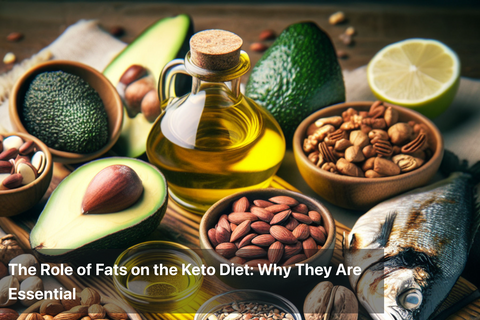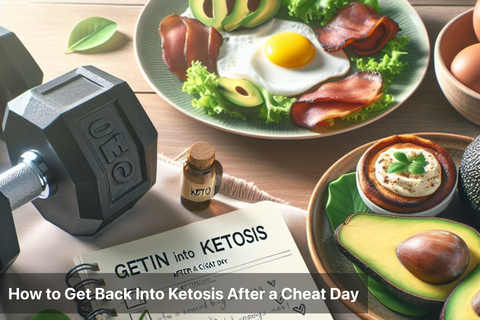
Is honey keto friendly?
The keto or ketogenic diet has picked up major steam for its low-carb, high-fat approach to weight loss and wellness. It works by cutting carbs drastically while increasing fats. This shifts your body into ketosis - burning stored fat instead of carbs for fuel.
Since honey is packed with carbs yet also a natural sweetener, it raises eyebrows. Its keto compatibility intrigues those striving to reach and stick with ketosis. In our exploration here, we’ll investigate honey’s nutritional makeup and consider how it impacts ketosis. Making informed food choices is what keto is all about, so understanding honey’s role is crucial.

Nutritional Composition of Honey
Nutritional value of honey for 1 tablespoon(21 grams):
Nutrient |
Amount |
Calories |
64 |
Fat |
0g |
Sodium |
0mg |
Carbohydrates |
17g |
Fiber |
0g |
Sugars |
17g |
Protein |
0.1g |
Potassium |
10.9mg |
Iron |
0.1mg |
Honey x Ketosis
High Carbohydrate Content: Honey is high in carbohydrates, primarily in the form of sugars like glucose and fructose. A single tablespoon of honey contains about 17 grams of carbs, which can significantly impact daily carb limits on a keto diet.
Raises Blood Sugar Levels: Consuming honey causes a spike in blood sugar levels, which can lead to an insulin response. This spike can disrupt the metabolic state of ketosis, where the body relies on fat for energy instead of carbohydrates.
Potential to Kick You Out of Ketosis: Due to its high carb content, even small amounts of honey can potentially kick someone out of ketosis. Maintaining ketosis typically requires limiting daily carb intake to around 20-50 grams.
Alternative Sweeteners: For those on a keto diet, there are alternative sweeteners like stevia, erythritol, and monk fruit that have minimal impact on blood sugar and insulin levels, making them more suitable for maintaining ketosis.
Occasional Use: While regular consumption of honey is not advisable on a keto diet, some individuals may choose to incorporate small amounts occasionally, understanding that it may temporarily disrupt ketosis.
Individual Variation: Some people may have a higher tolerance for carbs and might be able to consume small amounts of honey without significantly disrupting ketosis. Monitoring blood ketone levels can help assess individual responses.
Nutritional Benefits: Despite its high carb content, honey does offer some nutritional benefits, including antioxidants, vitamins, and minerals. However, these benefits need to be weighed against its impact on ketosis.
Mindful Consumption: If you choose to include honey in your keto diet, it's important to do so mindfully and in very small quantities, while closely monitoring your carb intake and ketosis levels.
Keto Recipes: When preparing keto-friendly recipes, opt for keto-approved sweeteners instead of honey to ensure that the recipes remain low in carbs and compatible with a ketogenic diet.
Understanding Limits: Understanding the limits and effects of different foods on your keto journey is crucial. Honey, while natural and nutritious, is not generally considered keto-friendly due to its potential to disrupt ketosis.
Alternatives to Honey on Keto
Now, let's explore the enticing world of keto-friendly sweeteners as alternatives to honey. Fortunately, the ketogenic diet doesn't mean bidding farewell to sweetness altogether. Several alternatives exist, each with its unique characteristics that cater to our cravings without jeopardizing ketosis.
Stevia:
Nutritional Profile: Zero calories and carbs.
Taste: Intensely sweet, derived from the leaves of the Stevia plant.
Fit for Keto: A go-to choice for sweetening beverages and desserts without impacting carb intake.
Erythritol:
Nutritional Profile: Low-calorie and zero net carbs.
Taste: Similar to sugar with no aftertaste.
Fit for Keto: Ideal for baking and cooking, providing sweetness without affecting blood sugar levels.
Monk Fruit Sweetener:
Nutritional Profile: Zero calories and carbs.
Taste: Natural sweetness with no bitter aftertaste.
Fit for Keto: A versatile sweetener suitable for various recipes, offering a sugar-like taste.
Xylitol:
Nutritional Profile: Low in calories with a small impact on blood sugar.
Taste: Sweet with a cooling sensation.
Fit for Keto: Used in baking and as a sugar substitute, but excessive consumption may lead to digestive discomfort.
These alternatives provide an avenue to indulge in sweetness without compromising the principles of ketosis. They offer versatility in the kitchen, allowing us to recreate our favorite treats while adhering to the low-carb, high-fat ethos of the ketogenic lifestyle.

Honey and Keto: Is It Compatible?
The nutritional composition of honey, rich in natural sugars, can impede the body's transition into ketosis. The potential drawbacks of honey in disrupting blood sugar levels highlight the need for a mindful approach to its inclusion in a low-carb, high-fat eating plan.
While honey comes with its share of health benefits, the question of whether it is truly keto-friendly depends on individual goals and preferences. For those unwavering in their commitment to ketosis, exploring alternative sweeteners like stevia, erythritol, monk fruit, and xylitol proves to be a satisfying solution. These options offer sweetness without compromising the principles of a ketogenic diet.
The world of keto is diverse, and the key is to find a sustainable approach that allows for enjoyment while staying true to the principles that define the ketogenic lifestyle. Whether honey finds a place in your keto journey or you choose to explore alternative sweeteners, the power lies in making choices that best support your well-being and individual aspirations.
This Blog post is an initiative by Lo! Foods, to provide accurate and Nutritionist / Doctor approved information related to Health. Lo! Foods is India's leading brand for Everyday Functional Foods. Foods designed for specific Health conditions or Needs. Lo! Foods also runs India's largest range of Low Carb Healthy Cloud Kitchens, under the brand names of Lo!, ProteinChef, ATH (All Things Healthy) and DiabeSmart.















Leave a comment
Your email address will not be published.